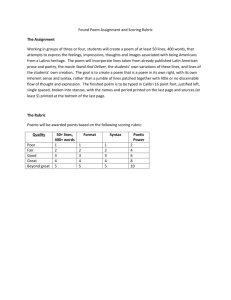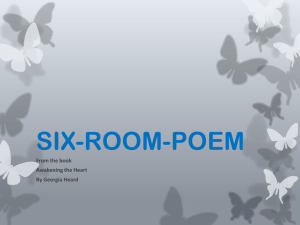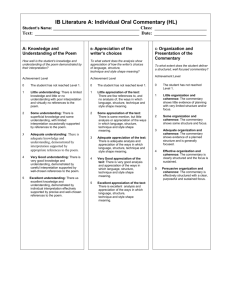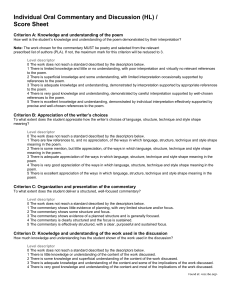Tips for the IOC Pay attention to the Guiding Questions. Although it is
advertisement
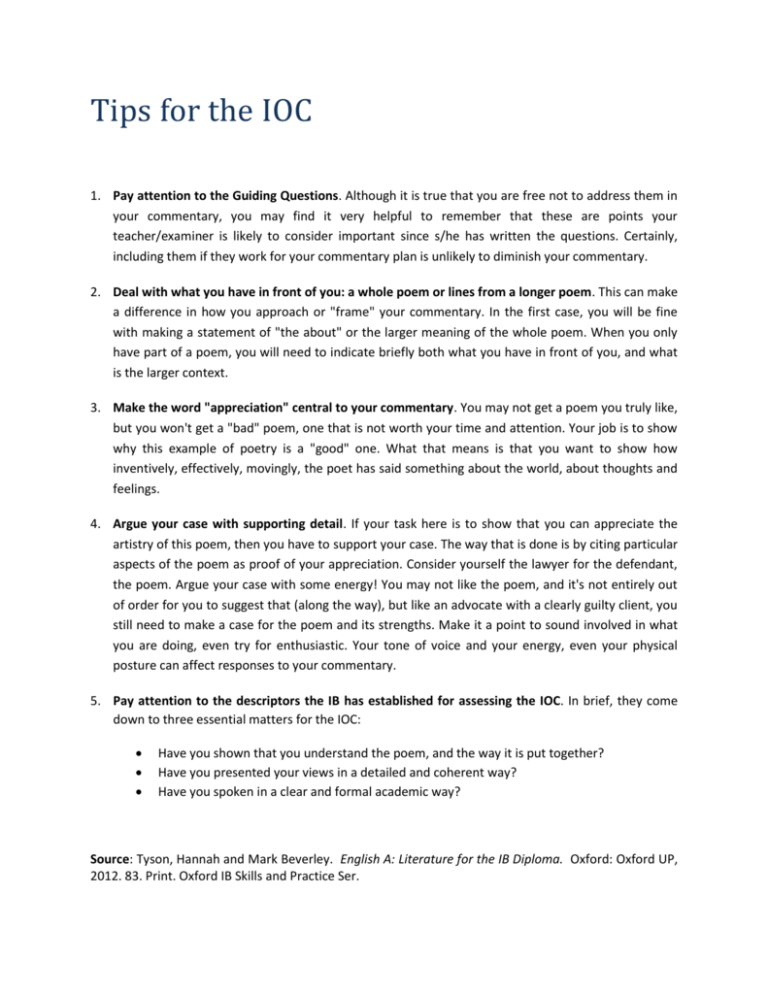
Tips for the IOC 1. Pay attention to the Guiding Questions. Although it is true that you are free not to address them in your commentary, you may find it very helpful to remember that these are points your teacher/examiner is likely to consider important since s/he has written the questions. Certainly, including them if they work for your commentary plan is unlikely to diminish your commentary. 2. Deal with what you have in front of you: a whole poem or lines from a longer poem. This can make a difference in how you approach or "frame" your commentary. In the first case, you will be fine with making a statement of "the about" or the larger meaning of the whole poem. When you only have part of a poem, you will need to indicate briefly both what you have in front of you, and what is the larger context. 3. Make the word "appreciation" central to your commentary. You may not get a poem you truly like, but you won't get a "bad" poem, one that is not worth your time and attention. Your job is to show why this example of poetry is a "good" one. What that means is that you want to show how inventively, effectively, movingly, the poet has said something about the world, about thoughts and feelings. 4. Argue your case with supporting detail. If your task here is to show that you can appreciate the artistry of this poem, then you have to support your case. The way that is done is by citing particular aspects of the poem as proof of your appreciation. Consider yourself the lawyer for the defendant, the poem. Argue your case with some energy! You may not like the poem, and it's not entirely out of order for you to suggest that (along the way), but like an advocate with a clearly guilty client, you still need to make a case for the poem and its strengths. Make it a point to sound involved in what you are doing, even try for enthusiastic. Your tone of voice and your energy, even your physical posture can affect responses to your commentary. 5. Pay attention to the descriptors the IB has established for assessing the IOC. In brief, they come down to three essential matters for the IOC: Have you shown that you understand the poem, and the way it is put together? Have you presented your views in a detailed and coherent way? Have you spoken in a clear and formal academic way? Source: Tyson, Hannah and Mark Beverley. English A: Literature for the IB Diploma. Oxford: Oxford UP, 2012. 83. Print. Oxford IB Skills and Practice Ser.






